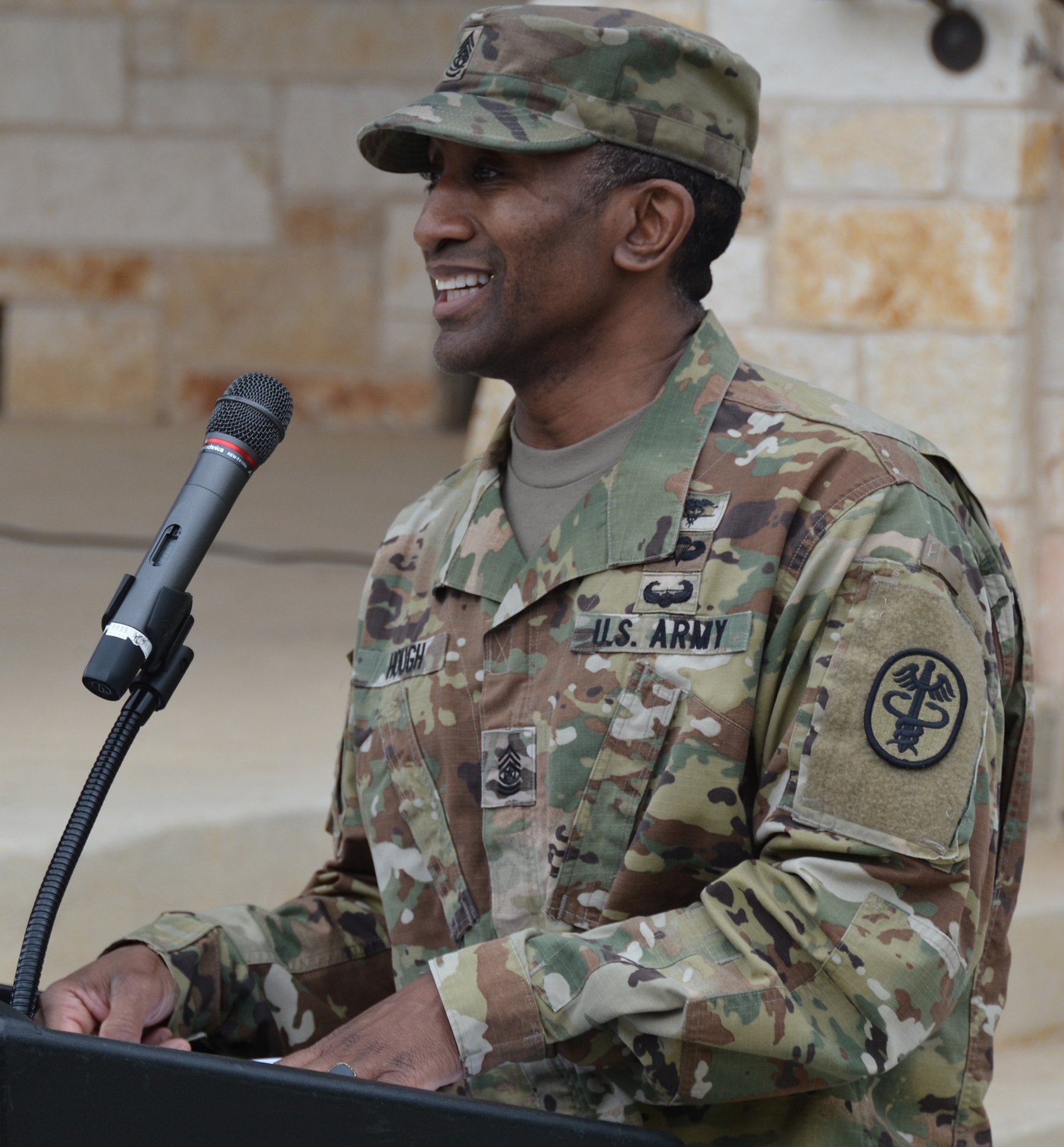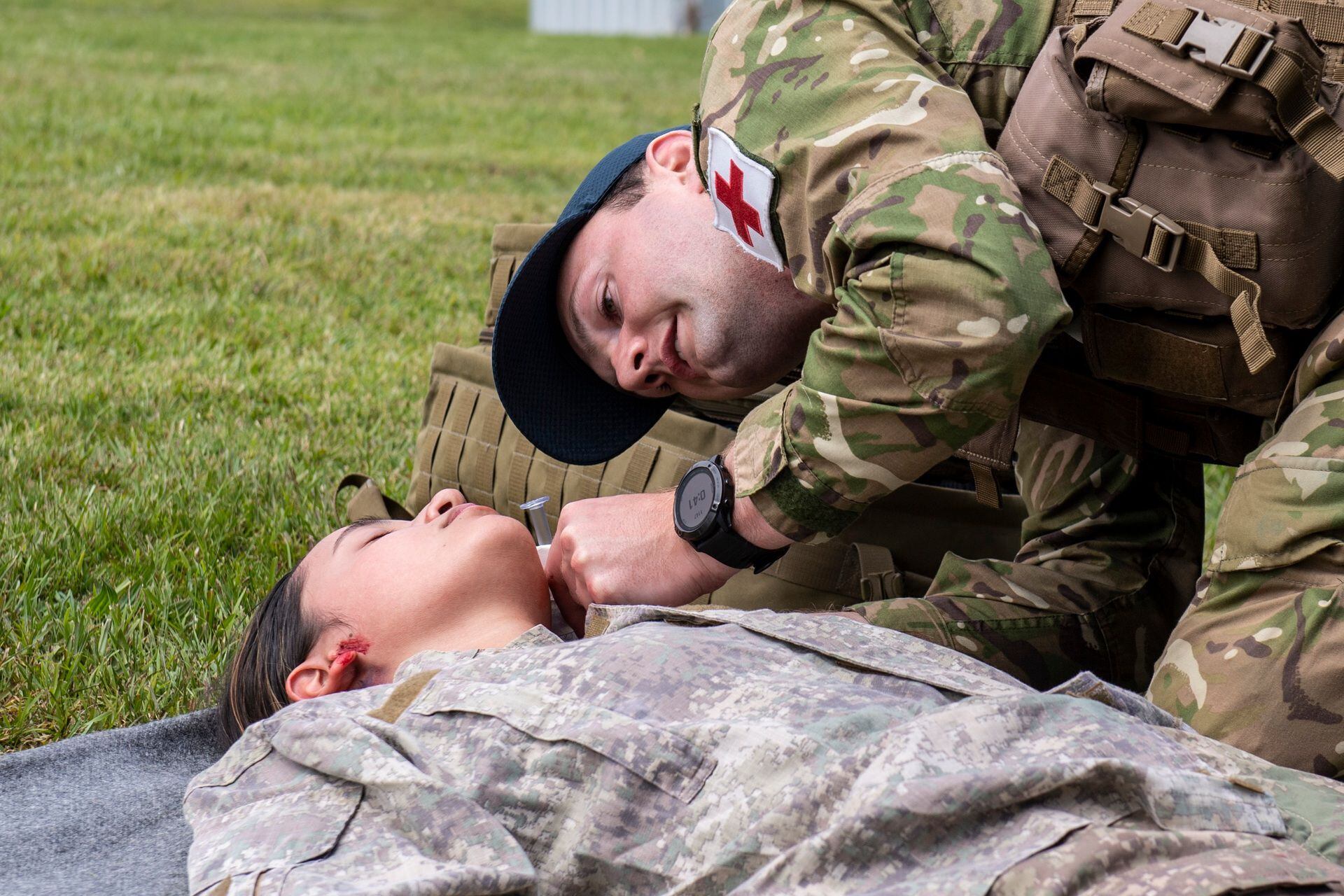Medic Military - Hear about this year's winners and learn how simulation is helping prepare medics for battlefield emergencies in the best medical competition.
The role of military medical personnel is critical: they provide life-saving emergency treatment for their soldiers, often in times of extreme chaos.
Medic Military

Annual CSM Jack L. Clark Jr. Army Best Medical Challenge tries to challenge the best medical personnel of the army in a simulated working environment. During the competition, the two groups of soldiers experience a series of events that limit their stress, physical and emergency medical skills. Among the many challenges the contestants face are an obstacle course, a physical challenge, land navigation and stress shots at the shooting range that test their ability to fight despite the harsh conditions. Competitors' medical skills are put to the test in round-the-clock combat medics that require them to effectively manage simulated casualties. Competitors advance in just 3 days of these grueling challenges. The team has great bragging rights: they are considered the most technically, physically and mentally challenging medical team in the Army.
How Military Medics Can Become Medical Assistants
Doctors who enter the Best Doctor competition are already among the "best". To be eligible, medics must have earned either the Expert Field Medic Badge (EFMB) or the Combat Medic Badge (CMB).
Both badges require the utmost determination and experience to obtain. The overall pass rate for the Professional Field Medic designation is less than 20%, making it one of the most difficult and prestigious designations to earn in the military.
Imagine jumping into a pool with all your gear, then swimming and removing everything to rescue the victim. You should then perform CPR while your partner retrieves your gear from the bottom of the pool. The scenario was just one of many chaotic events doctors have faced this year.
The 2022 competition was held January 24-28, 2022 in Fort Hood, TX. "I expect this race will present a lot of obstacles and medical challenges for [our team]," said Major Brian Ahlborn, a competitor at Carl R. Darnall Army Medical Center at Fort Hood, before the event.
Medic Brings Love Of League To The Solomons
His guess was right. Maj. Ahlborn and his teammate, Sgt. 1st Class David McAfee of Weed-Irwin Army Community Hospital in Fort Irwin, Calif., won first place in the competition with distinction. Both soldiers represented Regional Health Command-Central. Congratulations to this year's Top Doctors!
Other challenges included a 13-mile walk made tougher by heavy mud from a day of rain in central Texas, as well as an obstacle course involving carrying a 200-pound simulated patient up low ramps, across fields, and uphill. around hills and barbed wire.
The best medical competition begins to find the leading army medical team. But another important goal of the competition is to provide a valuable learning opportunity for each participating physician.

"It's not just a race about who's the fastest or the smartest," said master sergeant Michael Eldred, who plans events for the competition. "This is a comprehensive training program that empowers doctors, empowers them and makes them better at what they do, saving lives in the future."
Command Sergeant Major Diamond D. Hough Us Army Medicine's Senior Soldier Medic Leverages Battlefield Experience To Influence The Next Generation Of Combat Medics.
Simulation plays an important role in bringing realism to the experience. In most competitions, medical skill testing is often done through real-life simulators to maximize casualties. Simulation allows doctors to provide real care without fear of harming real victims. The military has turned to simulation for decades as a way to create a risk-free, hands-on training environment.
The Best Doctor competition uses situational simulations, which are simulations that take place where medical care is performed. On-site simulation takes realism to new levels and creates an immersive and immersive learning experience.
The competition uses the power of on-site simulation whenever possible. This is because it reinforces the highly unusual clinical environment in which military doctors travel constantly. Doctors must perform life-saving medical procedures when pushed to their physical and mental limits.
By the time competitors reach the competition, simulation can already play a role in preparing them for the top. Medical simulations are widely used in emergency medicine, including on the battlefield, to focus on three preventable causes of death. These include hemorrhage, tension pneumothorax, and airway obstruction.
Army Reserve Combat Medic Gets Frontline Experience > U.s. Department Of Defense > Story
"The overall pressure of a simulator scenario is nothing compared to doing the real thing."
This course influences doctors to succeed during the best doctor competition. When they compete, they use the same skills they learned in using simulations to demonstrate critical medical skills.
Simulators are often used to test the medical skills of doctors during competition. These learning scenarios allow you to practice effective caregiving regardless of what is happening around you.

Simulation training has been shown to improve skill retention in military training — so medics can survive the competition with some of the skills they've demonstrated in the scenarios.
National Guard Combat Medics Maintain Skills, Techniques > National Guard > Guard News
Below are some areas in which simulation training during competition can improve the future training of physicians to provide effective accident care:
Practicing basic procedural skills in a simulator allows doctors to work under pressure and improve without risking a real patient. A study by US Army combat medics found that using simulation to manage excessive bleeding resulted in a statistically significant improvement in bleeding prevention.
2 groups of soldiers must work together to repair and transport the simulations they encounter. One year, teams had to repair a simulated loss (shortly after a fire) and drop the loss down a 30-foot cliff.
Research shows that team training using simulation can enhance elements of effective teamwork, such as communication, coordination, and cooperation. Student learning is associated with improved patient outcomes.
Us Army World War Ii Combat Medic High Res Stock Photo
The simulation allows doctors to provide medical care while traveling in demanding environments. Getting through these situations can help you feel more confident that you can get through similar situations in the future. Experts agree that simulation training has been shown to improve self-confidence.
A study in military medicine found that simulation increased providers' confidence in performing clinical skills.
The value of participating in the Best Doctor competition is two-fold. Doctors don't just leave with new skills, energy, and preparation; but they gained experience that they can bring home to their teams.

"I may not be the best doctor, but what I've learned will make me a better leader. I can take what I've done here, go back and teach our doctors," explains Sergeant Arrard. 2016's runner-up is War Medicine.
Combat Simulation Lab Brings Real Life Scenarios To Medic Trainees > Joint Base San Antonio > News
3G Trauma is specifically designed to meet military needs for a high-quality, portable simulation solution that adapts to unique training environments and meets all educational objectives.
Managed Services software is an open solution that provides simulation resources and support to enable rapid deployment of simulation training initiatives.
Our education portfolio will help you implement best practices in your simulation training to optimize the learning experience for your students.
Sign up for medical email updates. You can identify your interests and receive new educational content, updates, event information and more. WASILLA, Alaska -- National Football League Hall of Fame coach Jimmy Johnson once said, "Opportunity comes with preparation." For Sgt. 1st Class Scott P. Samson, an enlisted man with the Wasilla Recruiting Station, that promise has been true twice in 2020 when he helped save a life.
Calming The Storm: Army Medics Compete To Be The Best > Joint Base Langley Eustis > Article Display
Samson, who has been in the Alaska Army since 2015, enlisted in 2010 and trained as an Army combat medic. Combat medics are military health professionals who provide emergency medical services, such as emergency physicians or ambulance technicians in civilian medical centers. They receive CPR training as part of their basic life support certification, and like all Soldiers, certifications must be current to stay in their careers.
"Medical emergencies never go away," Samson said. "Training to treat Soldiers and civilians wherever they are is essential to effective treatment on the ground. Effective treatment at every level of care accelerates survival."
"Any emergency medical experience that a person has is going to be valuable and helpful to someone who is receiving medical care," said Lt. Ruth Josten of the Wasilla Police Department.

Samson was conducting combat medic training for use on Father's Day when he was involved in a traffic accident on Seward Highway. "I joined eight to 10 people who stepped up to help," Samson said. “When I was in the car, a 6-year-old girl pulled me over
Uk Army Medics To Use Ar Glasses For Remote Battlefield Surgical Aid
Military medic training, military combat medic, military medic kit, military medic jobs, military medic equipment, military medic patches, us military medic, military medic, vintage military medic bag, military medic backpack, military medic bag, military medic to rn
0 Comments